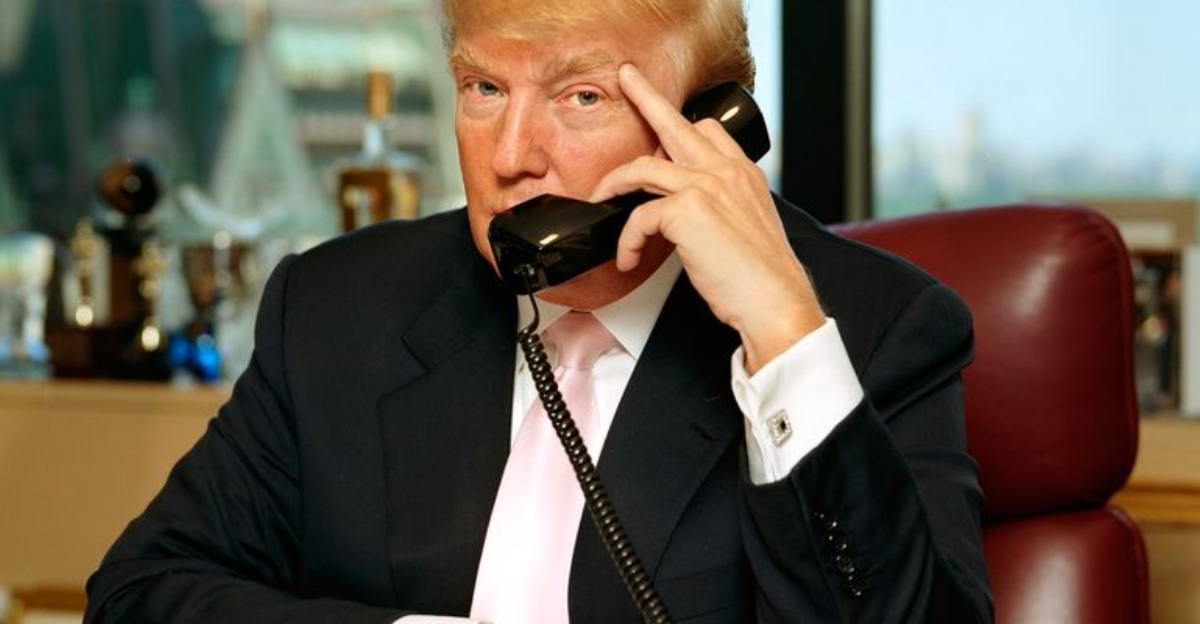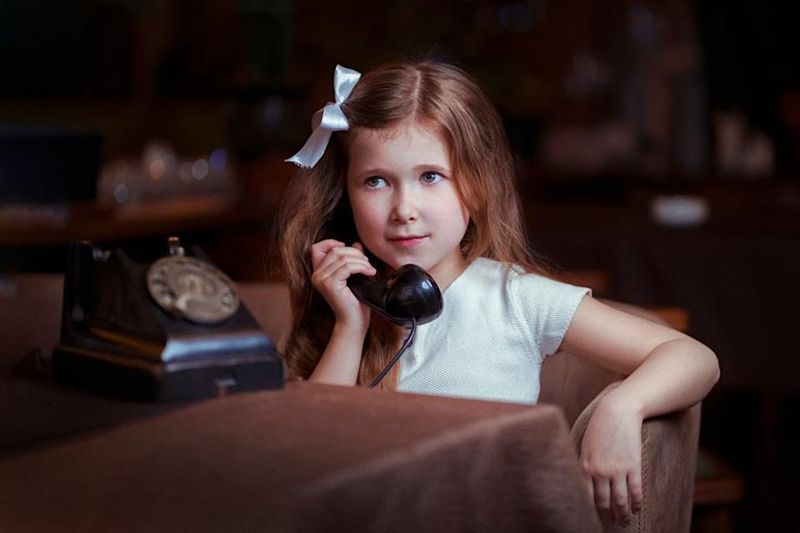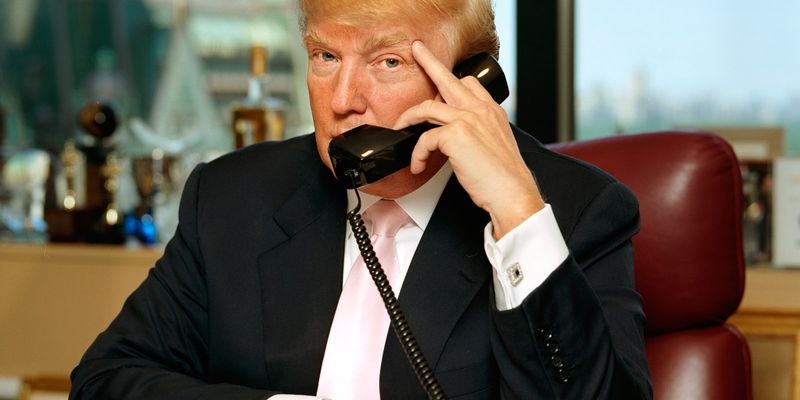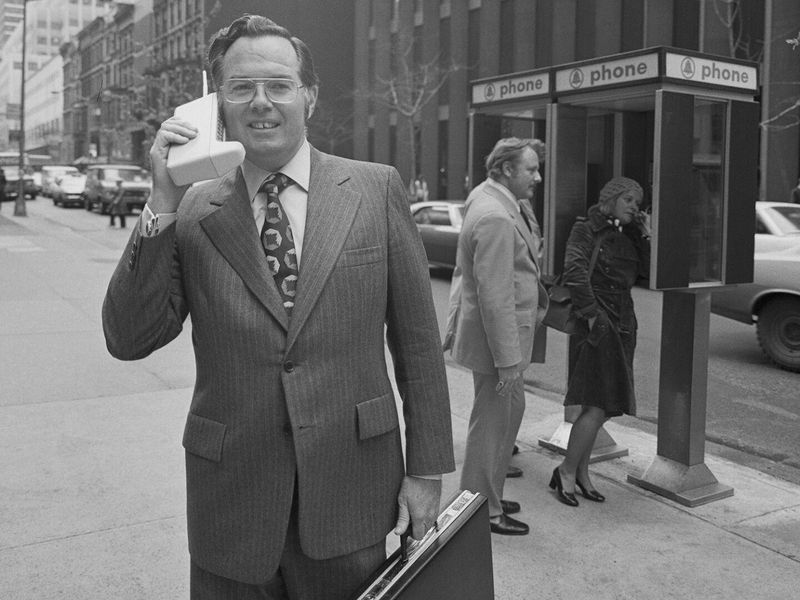13 Things You Were Told to Say on the Phone That Scream Boomer Energy

Remember when making a phone call was a formal affair with unwritten rules that everyone somehow knew? Those telephone traditions our parents and grandparents drilled into us seem hilariously outdated now.
As texting and video calls have replaced traditional phone conversations, many of those once-sacred phone protocols feel like relics from another era.
1. Announcing yourself before asking for someone

“Hello, this is Margaret calling. May I please speak with Susan?” This elaborate self-introduction protocol was once non-negotiable phone etiquette.
Today’s calls skip straight to the point: “Is Susan there?” The old-school approach reflects a time when calls were events, not casual interruptions in our day-to-day lives.
2. Asking “To whom am I speaking?”

Formal phone language was once the gold standard of telephone communication. The phrase “To whom am I speaking?” sounds like something from a period drama today.
Modern callers just say “Who’s this?” without batting an eye. The stuffiness of proper grammar on calls reflects an era when telephone conversations were treated with the formality of written letters.
3. “Speaking” instead of “Yeah, that’s me”

When someone asked for you by name on a call, responding with the crisp, formal “Speaking” was the height of telephone sophistication. It conveyed authority and proper manners in one syllable.
Modern phone users typically respond with casual confirmations like “Yeah, that’s me” or simply “This is she/he.” The change reflects our broader cultural shift toward informality.
4. “May I ask who’s calling?”

Gatekeeping phone calls with the formal “May I ask who’s calling?” was standard practice for decades. This polite screening mechanism let the recipient decide whether to take the call.
Now it sounds unnecessarily stuffy. Modern call screening happens silently through caller ID, letting us avoid conversations altogether rather than navigating the awkward social dance of the formal inquiry.
5. “One moment please, I’ll connect you”

The formal hand-off phrase “One moment please, I’ll connect you” evokes images of switchboard operators and secretaries screening calls. This polite transition gave both parties time to prepare for the conversation.
Today’s equivalent is the abrupt “Hold on” or simply shouting for someone to pick up another phone. The loss of this transitional courtesy reflects our increasingly time-compressed communication style.
6. “I’ll have them return your call”

Promising “I’ll have them return your call” was once a sacred vow, not the casual brush-off it often represents today. People would actually write down messages and make sure calls were returned!
Nowadays communication has rendered this phrase nearly obsolete. Now we text “Someone called you” or simply expect missed callers to text their purpose instead of waiting for a callback.
7. “Please hold the line”

“Please hold the line” conjures images of operators manually connecting calls through switchboards. This formal request to wait patiently was standard telephone protocol for decades.
Today’s equivalent—”Hang on a sec”—lacks the ceremonial politeness. The shift from treating callers like honored guests to viewing calls as casual interruptions shows how dramatically our relationship with phone communication has changed.
8. Saying goodbye multiple times

The prolonged goodbye ritual—”Alright then… yes… okay… goodbye… bye now… bye”—remains one of the most enduring Boomer phone habits. These extended farewells evolved to prevent awkward hang-up timing in an era before visual cues.
Younger generations find this tradition baffling and inefficient. One “bye” suffices now, or calls simply end with task-oriented phrases like “See you at eight!”
9. “Is this a good time to talk?”

Asking “Is this a good time to talk?” acknowledges that phone calls demand immediate attention and might interrupt something important. This consideration stems from an era when receiving calls required dropping everything else.
Modern communication rarely includes this courtesy question. We assume people will ignore calls if busy, leading to the text-first-then-call approach that’s replaced this formal inquiry.
10. “I’m just calling to say…”

Beginning with “I’m just calling to say…” shows the era when phone calls needed explicit purpose statements. This opening acknowledged the interruption while providing immediate context for the conversation.
Today’s communication often skips this formality. We launch directly into our point or, more likely, text instead of call when the message is simple enough to be prefaced with “just.”
11. “I’ll be brief”

Promising “I’ll be brief” acknowledged that phone time was valuable long before minutes were counted. This consideration stemmed from an era when calls could tie up the only household line.
The phrase has virtually disappeared as unlimited calling plans eliminated time concerns. Now brevity happens naturally—many avoid voice calls altogether for anything that doesn’t require extended conversation.
12. “I’ve been trying to reach you”

Announcing “I’ve been trying to reach you” harks back to pre-voicemail days when failed connection attempts went unrecorded. This phrase communicated persistence and importance before call logs existed.
Today it sounds vaguely accusatory. Modern phones track missed calls automatically, making this statement unnecessary unless you’re passive-aggressively highlighting someone’s unresponsiveness.
13. “Please give my regards to…”

Ending calls with “Please give my regards to…” extended social connections through telephone intermediaries. This formal message delivery system maintained community bonds in an era of expensive long-distance calls.
The phrase has virtually disappeared as direct communication became universal. Why send regards through a third party when you can text, email, or call anyone directly?
